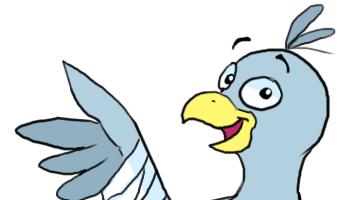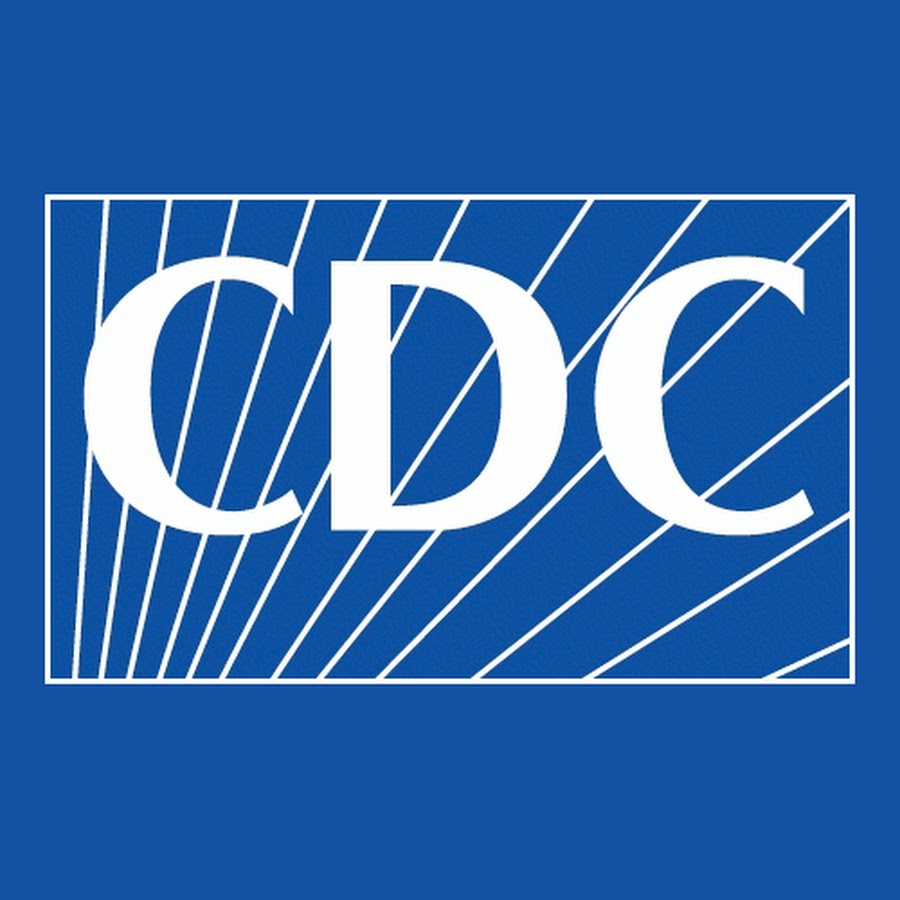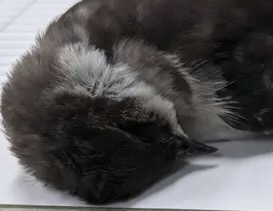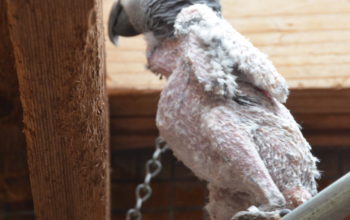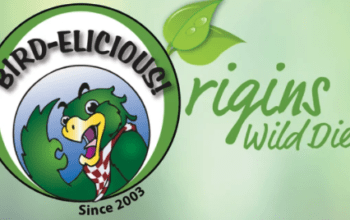Salmonella Outbreak Linked to Wild Songbirds

Posted April 1, 2021 Fast Facts
- Illnesses: 19
- Hospitalizations: 8
- Deaths: 0
- States: 8
- Investigation status: Active
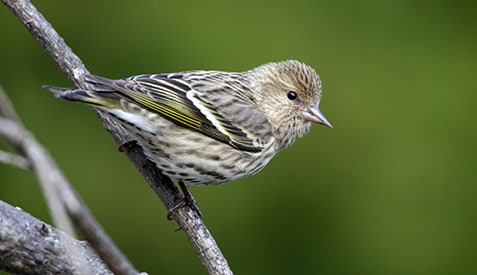
Salmonella in Wild Songbirds and in People in the United States
Birds can carry germs like Salmonella while looking healthy and clean. However, there are reports of wild songbirds, such as pine siskins (small, streaked, yellow-tinged songbirds in the finch family) sick with the same strain of Salmonella that is making people sick in this outbreak. Salmonella germs can spread between species of birds, to pets, and to people.
You can get sick when you touch your mouth with unwashed hands after touching wild birds, bird feeders or bird baths, or your pets that have contact with wild birds.
What You Should Do
Help keep people and animals healthy around bird feeders and bird baths.
- Clean and disinfect your bird feeder and bird bath weekly or when they are visibly dirty.
- Clean feeders outside your house when possible. If you clean it indoors, use a laundry sink or bathtub, and thoroughly clean and disinfect the area right after. Do not clean bird feeders in your kitchen or places where food is prepared or stored.
- Follow these five steps to clean and disinfect your bird feeder:
- Scrub feeder with warm soapy water to remove dirt. Rinse with clean water to remove soap.
- Soak in a bleach solution (9 parts water and 1 part bleach) for at least 10 minutes.
- Rinse with water to remove any remaining bleach solution.
- Let it dry before refilling it.
- Wash your hands with soap and water after touching your bird feeder.
- Clean and refill your bird bath weekly or when it’s visibly dirty.
- Keep pets away from bird feeders and bird baths and the areas under them.
- If you find a sick or dead bird in your yard, remove your feeder and bath for two weeks and clean them outdoors.
Do not touch or hand-feed wild birds with your bare hands.
- If you find a sick bird, call your state wildlife agencyor wildlife rehabilitator.
- If you find a dead bird, check with your state wildlife agency for information about reporting dead birds in your area.
- Some state and local agencies collect dead birds to test for diseases.
- If your local officials tell you to throw the dead bird away, wear gloves or place a plastic bag over your hand to pick it up. Place the bird in a plastic bag, tie the bag up, and throw it away, following your local officials’ instructions. Some locations may allow dead birds to be disposed of in your regular trash. Wash your hands with soap and water when you are finished.
Always wash your hands with soap and water:
- Right after touching your bird feeder or bird bath
- Right after handling a bird, even if you wore gloves or used a bag
- Right after touching your pet or pet’s supplies (like food, bowls, and toys)
- Right after picking up your pet’s feces (poop), even if you used a bag
- Before you eat or drink
Call your healthcare provider right away if you have any of these severe Salmonella symptoms:
- Diarrhea and a fever higher than 102°F
- Diarrhea for more than 3 days that is not improving
- Bloody diarrhea
- So much vomiting that you cannot keep liquids down
- Signs of dehydration, such as:
- Not urinating (peeing) much
- Dry mouth and throat
- Feeling dizzy when standing up
Symptoms of Salmonella
- Most people infected with Salmonella experience diarrhea, fever, and stomach cramps.
- Symptoms usually start 6 hours to 6 days after swallowing the bacteria.
- Most people recover without treatment after 4 to 7 days.
- Some people—especially children younger than 5 years, adults 65 years and older, and people with weakened immune systems—may experience more severe illnesses that require medical treatment or hospitalization.
- For more information about Salmonella, see the Salmonella Questions and Answers page.

